Category: Mahavidya
Añjanā
अञ्जना (Añjanā) is the mother of Hanuman, and during the रामायण (Rāmāyaṇa), She was a resident of किष्किन्ध (Kiṣkindhā). But…
Bagalāmukhī Yuddha Mantra
॥प्रार्थना॥
दुश्टस्थम्बनमुग्रविन्घ शमनं दरिद्यविद्रवनं
विग्नैघं बगले हर प्रतिदिनं कल्यणि तुभ्यम् नमः।
कञ्चन पीठनिविष्टं मुनिवरसादरघूर्नितप्रभं
करुणपूरितनयं श्रीबगलपीतम्बरां वन्दे॥
|prārthanā||
duśṭasthambanamugravingha śamanaṁ daridyavidravanaṁ
vignaighaṁ bagale hara pratidinaṁ kalyaṇi tubhyam namaḥ|
kañcana pīṭhaniviṣṭaṁ munivarasādaraghūrnitaprabhaṁ
karuṇapūritanayaṁ śrībagalapītambarāṁ vande||
॥ध्यानं॥
मध्ये सुदाब्धिमणिमण्डपरत्नवेद्यं
सिम्हासनोपरिगतां परिपीतवर्णं।
पीताम्बरभरणमाल्यविभूषितांगीं
देविं स्मरामि धृतमुद्गरवैरिजिह्वं॥
||dhyānaṁ||
madhye sudābdhimaṇimaṇḍaparatnavedyaṁ
simhāsanoparigatāṁ paripītavarṇaṁ|
pītāmbarabharaṇamālyavibhūṣitāṁgīṁ
deviṁ smarāmi dhṛtamudgaravairijihvaṁ||
॥त्रिश्तुप् च्छन्द मन्त्र॥
ॐ ह्रीं बगलामुखी सर्वदुष्टानां वाचं मुखं
स्थम्भय जिह्व कीलय कीलं बुद्धि नाशाय ह्रीं ॐ स्वाहा।
||triśtup cchanda mantra||
om hrīṁ bagalāmukhī sarvaduṣṭānāṁ vācaṁ mukhaṁ
sthambhaya jihva kīlaya kīlaṁ buddhi nāśāya hrīṁ om svāhā|
Śrī Akṣobhya
The word akṣobhya means immovable or imperturbable and is the opposite of kṣobha which means shaking, agitation and disturbance, tossing, trembling or emotional. Thus akṣobhya refers to that state of perfect calmness achieved as a result of perfect knowledge.
Ṣaḍākṣarī Mantra
In the Buddhist tradition, he is one of the five transcendent (tathāgata) buddhas. Tathāgata refers to the principal lord of a Buddha clan (there are five such lineages). Akṣobhya is lord of the vajra lineage (or Vajrāyana Buddhism). Just like the lord of the eastern direction Indra (Śakra), he rides an elephant.
Kamalā Vidyā
Kamalātmikā of golden complexion and perfectly proportioned, is bathed by four elephants from the four directions (kendra) using amṛta kalaśa. Amṛta (nectar) constantly flows from kalaśa (jars) and nourishes the rivers and beings of the universe. She has four hands. In the two hind hands, she holds two lotuses and her two fore hands are in abhaya mudrā (fearlessness) and vāra mudrā (boons) respectively. She is seated in padmāsana (lotus posture) on a red lotus that symbolizes purity.
Chinnamastā
Introduction
Chhinnamasta (Sanskrit: छिन्नमस्ता, Chinnamastā, “She whose head is severed”), often spelled Chinnamasta and also called Chhinnamastika and Prachanda Chandika, is one of the Mahavidyas, ten Tantric goddesses and a ferocious aspect of Devi, the Hindu Divine Mother. Chhinnamasta can be easily identified by her fearsome iconography. The self-decapitated goddess holds her own severed head in one hand, a scimitar in another. Three jets of blood spurt out of her bleeding neck and are drunk by her severed head and two attendants.
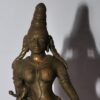
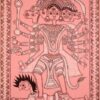
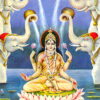
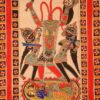

 We have an excellent pandit Divākar ‘Deva’ Mishra, who is from the priests of Vindhyāvāsini Siddha Pīṭha to guide you through the hundreds of temples of Kāśi [Varanasi] and neighbouring regions. He can organise your pūjā, keep you safe and take care. He is supported by an English-speaking well-travelled spouse ‘Supriya Mishra’. Please contact them directly for any services, remedial pūjā and tours. They handled the 60+ member Kāśi Jyotiṣa Group 2022.
We have an excellent pandit Divākar ‘Deva’ Mishra, who is from the priests of Vindhyāvāsini Siddha Pīṭha to guide you through the hundreds of temples of Kāśi [Varanasi] and neighbouring regions. He can organise your pūjā, keep you safe and take care. He is supported by an English-speaking well-travelled spouse ‘Supriya Mishra’. Please contact them directly for any services, remedial pūjā and tours. They handled the 60+ member Kāśi Jyotiṣa Group 2022.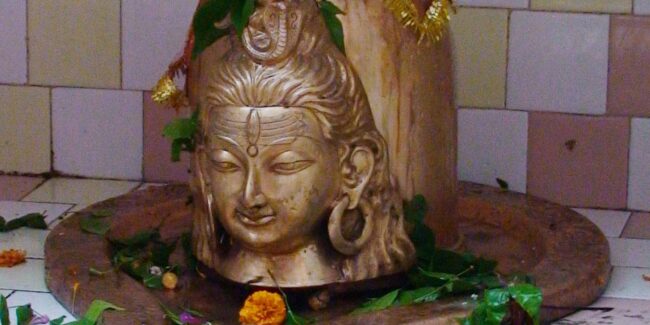
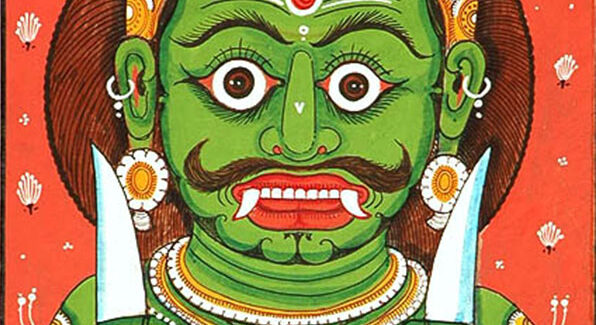
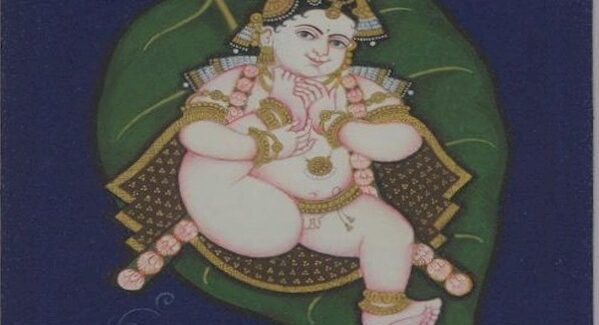
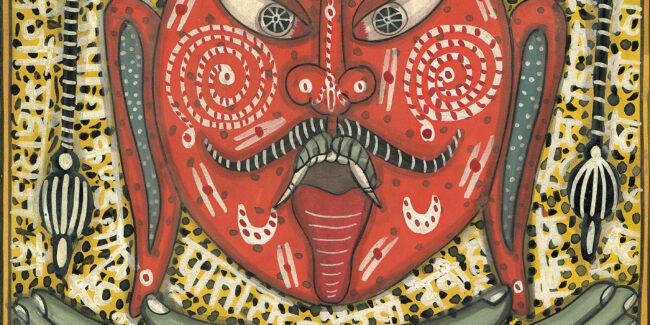
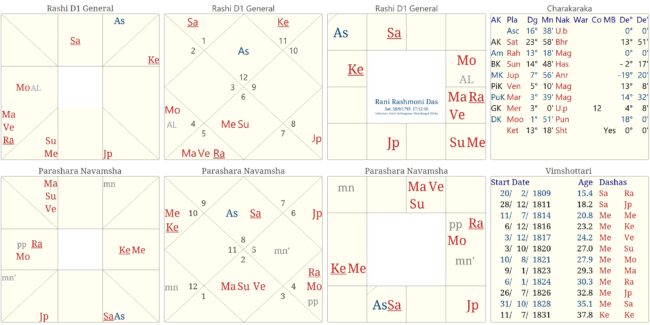
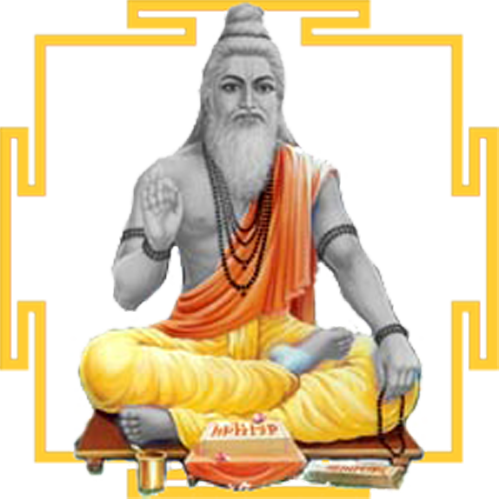 DBC offers online courses in jyotish (Vedic Astrology) taught directly by Sanjay Rath as per the tradition, through narrated power points and other audio tools. The courses are at different levels, from the beginners through the intermediate to the advanced and are known as SoHamsa | DBC courses, with individual classrooms and assistant teachers
DBC offers online courses in jyotish (Vedic Astrology) taught directly by Sanjay Rath as per the tradition, through narrated power points and other audio tools. The courses are at different levels, from the beginners through the intermediate to the advanced and are known as SoHamsa | DBC courses, with individual classrooms and assistant teachers
 Sagittarius Publications is the publisher and distributor the popular quaterly magazine the Jyotish Digest, as well as many thorough books on the subject of Vedic Astrology or Jyotish.
Sagittarius Publications is the publisher and distributor the popular quaterly magazine the Jyotish Digest, as well as many thorough books on the subject of Vedic Astrology or Jyotish.